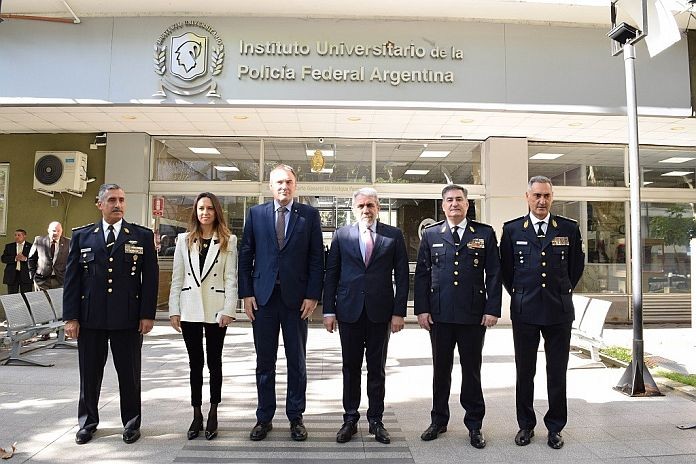BUENOS AIRES, Argentina – The evolving digital landscape in the Americas has increased the challenges and vulnerabilities regarding cybersecurity. Countries across the region now face cybercrime attacks ranging from Business Email Compromise and online scams to ransomware and money laundering.
Cybercrime threat
Financially motivated groups have not only targeted organizations across Latin America, primarily with ransomware, but they have also broadened the scope of their operations. In the first half of 2020, Latin America for example recorded the world’s highest cyber-attack rates, with nearly three times more attacks via mobile browsers than the global average.
For example, Costa Rica became the victim of large-scale ransomware attacks initiated by a group called Conti in April 2022. Starting in the Costa Rican ministry of finance, the cyber-assault ultimately involved 27 different ministries in a series of interlinked attacks. Conti’s action left parts of Costa Rica’s digital infrastructure crippled for months, while at the same time disrupting public healthcare and the pay of some public sector workers.
One of Argentina’s largest internet service providers, Telecom Argentina also suffered a major ransomware attack involving around 18,000 computers in 2020. In this incident, hackers demanded a $7.5 million ransom, while employees were prevented from accessing databases and internal VPNs.
In this context, the 7th INTERPOL Americas Working Group on Cybercrime met from 12-16 September in Buenos Aires, Argentina to assess threats and trends across the region. The meeting brought together over 90 participants from 32 member countries, 4 international organizations and 13 public and private entities.
Police cooperation key to fighting cybercrime
Amongst key priorities, the Group discussed the Global Cybercrime strategy 2022 -2025, which will be published later this year. This strategy will develop in-depth understanding of the cybercrime threat and enhance capabilities to prevent, detect, investigate and disrupt cyberattacks.
The Group also discussed the establishment of an Americas Desk for the coordination of operations against cybercrime. This is line with INTERPOL’s global strategy, with other desks previously set up in Africa and the ASEAN regions.
Other topics focused on cyber response initiatives, cryptocurrency investigation, emerging cyber threats in Americas and sharing of investigative information.
“During the meeting, cybercrime operational data relating to live cases was shared between countries. Such information will help develop new actionable intelligence in order to reduce the global impact of cybercrime and protect communities for a safer world.” Craig Jones, Director of Cybercrime Directorate, INTERPOL.
“This Working Group is a good opportunity to enhance police cooperation at international and regional level so we can combat cybercrime in a more effective way and make the world a safer place,” said Juan Carlos Hernandez, Chief of the Argentinian Federal Police.
Capacity building in the Americas
Greater reliance on new technologies has paved the way for cybercriminals, as they attack with increased frequency and efficiency. Lack of sufficient attention to security as well as computer vulnerabilities provide cybercriminals with low-risk, high-reward opportunities for illicit gain.
Faced with this growing threat, INTERPOL carried out a range of activities in Latin America to raise awareness of cybercrime and promote closer regional cooperation. Key activities included training courses on INTERPOL policing capabilities, digital forensics, open-source intelligence, cryptocurrencies and dark web investigations.
Such activities fall under the Cyber Americas Project (funded by Global Affairs Canada) and the Global Action on Cybercrime Extended (GLACY+) project, a joint initiative of the European Union and Council of Europe.





